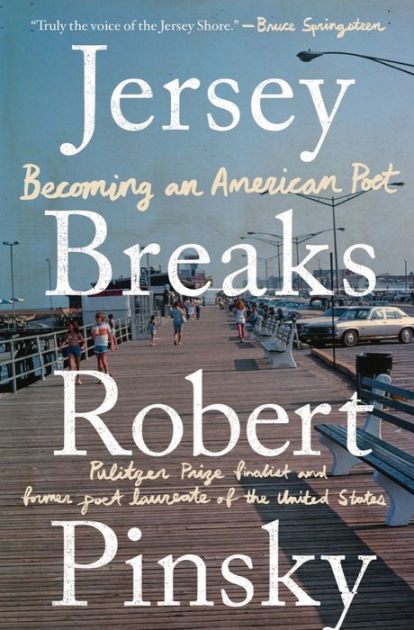By Katrina Scalise (COM’25)
 Robert Pinsky is an American poet, literary critic, translator, essayist, and has been a member of Boston University’s faculty since 1988. In addition to authoring books and poetry collections, serving as the Poet Laureate Consultant in Poetry to the Library of Congress from 1997 to 2000, and serving as poetry editor for Slate magazine, Pinksy has taught writing at multiple universities.
Robert Pinsky is an American poet, literary critic, translator, essayist, and has been a member of Boston University’s faculty since 1988. In addition to authoring books and poetry collections, serving as the Poet Laureate Consultant in Poetry to the Library of Congress from 1997 to 2000, and serving as poetry editor for Slate magazine, Pinksy has taught writing at multiple universities.
Pinksy is currently the William Fairfield Warren Distinguished Professor in English (CAS) and Creative Writing (CAS Creative Writing MFA Program), the highest distinction for senior faculty members. Pinksy’s upcoming autobiography, Jersey Breaks: Becoming an American Poet, which delves into his life and career as a poet, is out on October 11.
Q: How significant was your childhood in New Jersey to the book? How did your upbringing influence your identity, and later on, your literary career?
A: JERSEY BREAKS pretty much tries to answer exactly this question. How has my life’s work been determined by growing up in a multi-ethnic Jersey Shore resort town, on the exact, porous border in a neighborhood that was biracial and segregated?
Q: Why is retelling your experience as the U.S. Poet Laureate valuable to readers? How has your time as the Poet Laureate influenced your subsequent writing?
A: In the years before deciding to write this book, I struggled, like many people, to understand the rise, and rising visibility, of nasty elements in American culture and politics.
As U.S. Poet Laureate I had created a national project I thought of as patriotic: the Favorite Poem Project.The videos at www.favoritepoem.org show a generous, democratic, many-cultured, polyglot spirit in our country, through a variety of specific readers in their personal encounters with great poetry.
Was that project naïve? Did it blind itself to historic realities like white supremacy or antisemitism?
My early book-length poem An Explanation of America tries to include those ugly currents, while presenting the country to a young child, addressed in the book— again, in its own bedevilled way, patriotic.
Q: What was the hardest part about writing the autobiography?
A: As in writing a poem— or, really, as in living a life— There was a struggle to find the right point between the personal and the social, some true balance.
Q: What inspired you to write your autobiography at this point in your life?
A: As I say in the first sentence of the book, a dear friend asked me to explain how it is that I became a poet rather than an optometrist or a criminal.
Q: How has your time at Boston University influenced your life and your upcoming book?
A: The Creative Writing Program has given me years of association with MFA students who are interested exactly, ardently, in exactly the kinds of subject and the kinds of art that have obsessed me, There were glimpses of that in my years teaching at UC Berkeley, but here at BU that communal enterprise has a remarkable intensity. I don’t mean just the many students who have become eminent, won prizes and so forth (Carl Philips, Erin Belieu, many others) but everyone: to use a much-used, sometimes perfunctory word. In the University, and in the city. When the great Polish poet Adam Zagajewski gave a reading at BU he said he was glad to be in Boston, “the capital of poetry.” I have benefited greatly from the community of poetry.
I’ll add that BU/EdX made possible the “Art of Poetry” MOOC and its videos at www.bu.edu/artofpoetry/ all the video shot and produced at BU, by the gifted Devin Hahn.
Q: In an excerpt of your book, you write about the sounds of poetry, and how poetry is a vocal art, “I compose poems with my voice for your voice.” How do you apply this method to the classes you teach at BU? And what do you hope your students will take away from your classes?
A: In every sense of the word, we listen to one another. A custom is that a new poem is read aloud first by someone else in the class, and then by the author.
Q: What’s next for you? Do you plan to continue teaching and writing?
A: I hope to keep doing both kinds of work, and I hope that the pressure of being kind of old will add to the intensity, not dilute it.